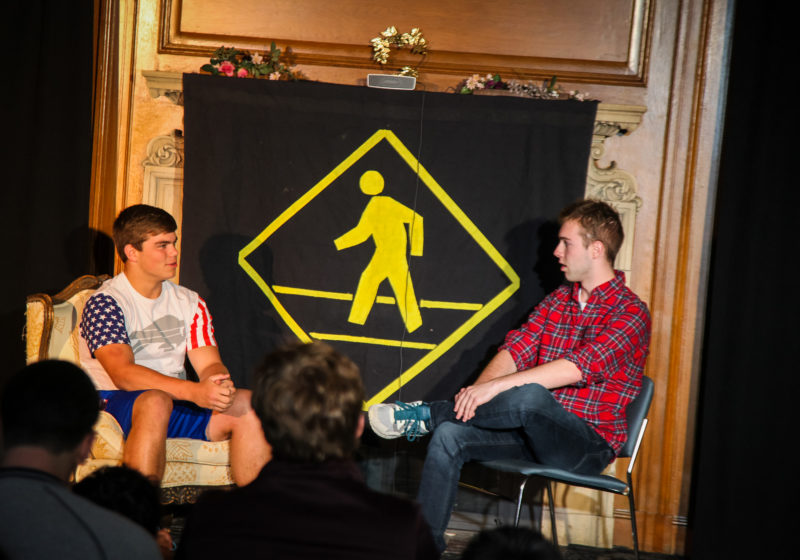When trying to describe improv comedy to someone unfamiliar with the concept, it’s difficult to do it justice.
“It’s sketch comedy, but they make it up as they go along,” is a perfectly accurate description, but it sounds awful. You, a reasonable person, are probably asking why you would want to see a show where even the performers don’t know if it will be any good.
The answer, reasonable person, is that the uncertainty of improv is what makes it so irresistibly thrilling.
This is the case with In Between The Lines, UR’s student-run improv comedy group, whose popularity is well deserved.
On Saturday, IBTL held their first show of their semester, “Daddy Issues.” The setup of the show went like this: An audience volunteer is interviewed for a few minutes about their family, the volunteer returns to the audience, and the group performs a myriad of rapid-fire improvised scenes inspired by the interview. This cycle is repeated four times.
If it sounds like this formula is flawed, it is because it really should be. Logically speaking, if the audience volunteer doesn’t have a fascinating family, the scenes won’t be funny. This nervousness marks the beginning of each cycle of the game.
But when the interview ends and the scenes start, the tension explodes into joyous creative energy. Despite that several audience members did have interesting families, it was quickly established that what was truly important was the group members’ ability to create scenes and characters with the information they were given.
The scenes were undeniably funny, but my favorite aspect of the show the creative process of some brilliant performers.
I saw characters developing in one scene to return in a later scene to even greater effect. I saw jokes from two cycles ago brought back and placed in a new context. Some bits were simply repeated and refined throughout the show until perfected by the performers. (Watching the group polish a gag involving miscommunication at an operating table was an absolute joy.)
One potential issue with improv is that its “perform now think later” nature can cause performers to get insensitive or mean-spirited. In “Daddy Issues,” this was never the case.
The humor was edgy, but the atmosphere of the show was as supportive as a therapy group. The performers were all there to help each other put on as good a scene as possible. The audience responded with laughter, but also with applause out of admiration for the stunning skill of the group.
For a show so filled with repetition (jokes and scene set ups are repeated throughout), it is impressive that it never got tiresome. The group maintains its momentum perfectly and the audience never loses the audible enthusiasm that fuels the atmosphere.
The show was unrelentingly energetic, and I left feeling not exhausted, but exhilarated.





